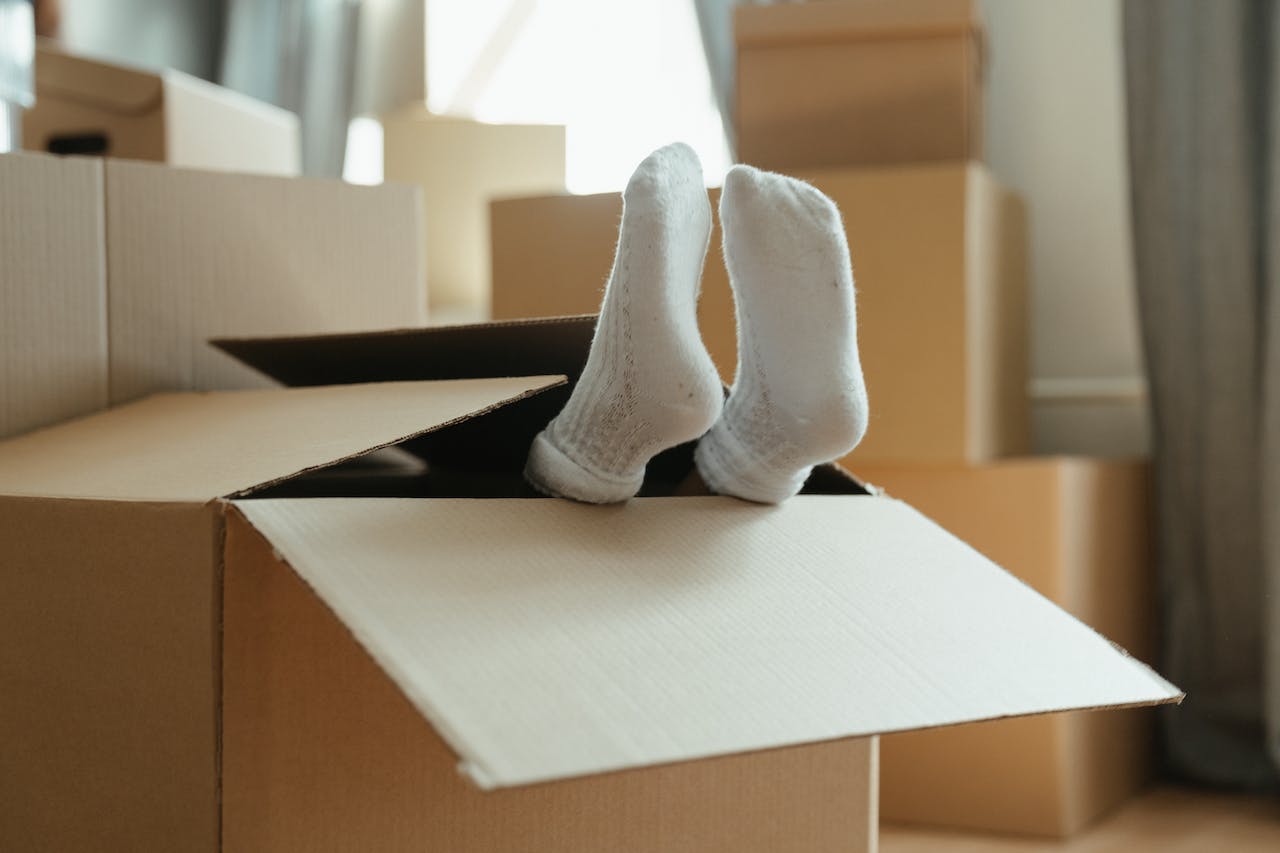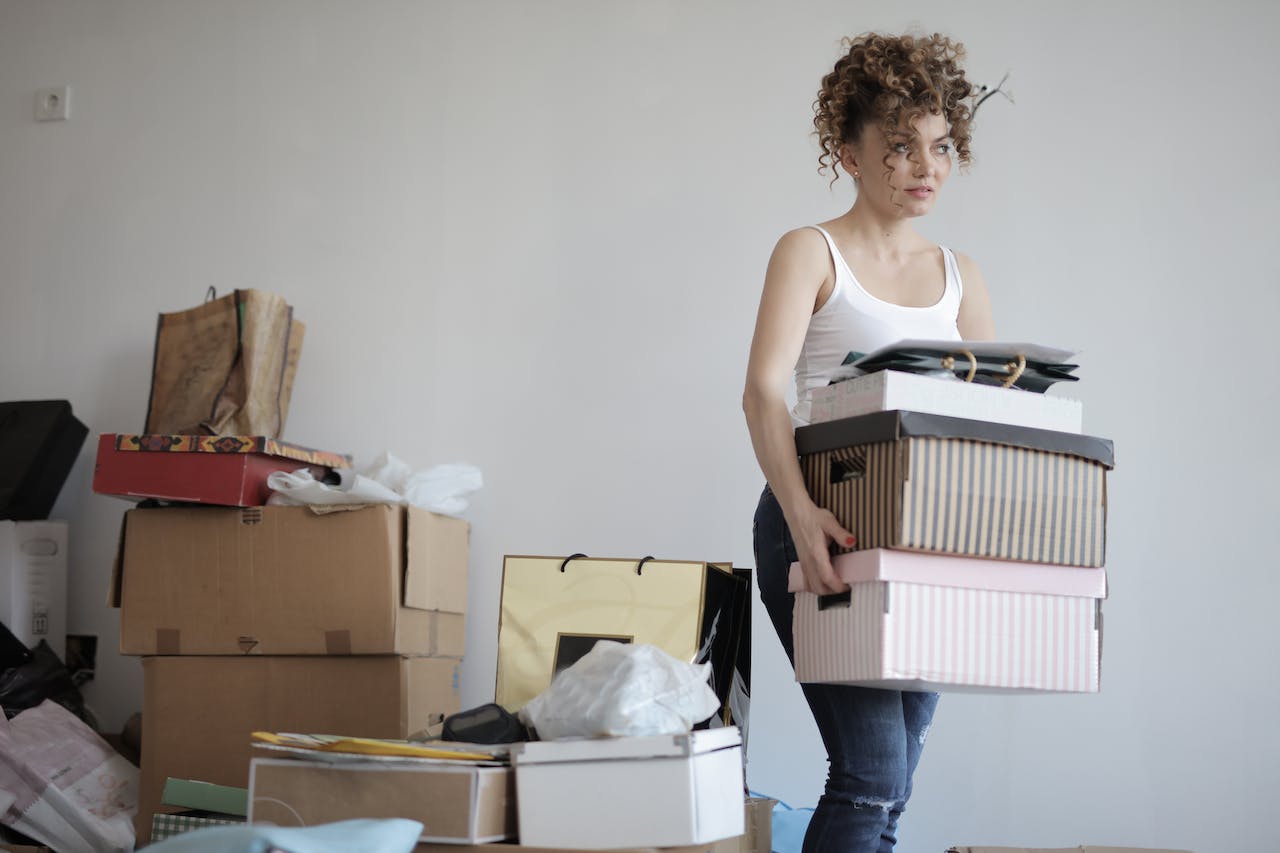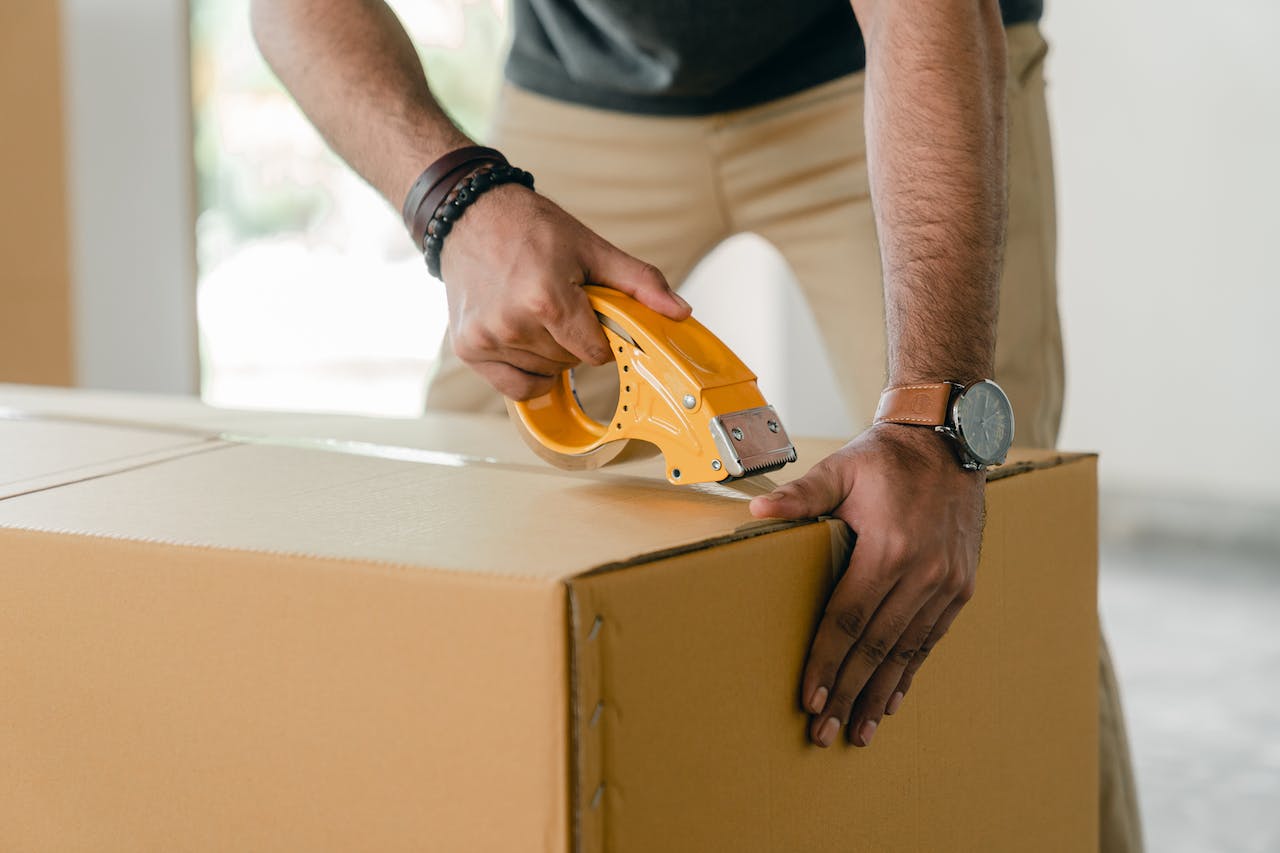Hidden Moving Costs - The Unseen Financial Burdens Of Moving Day
Hidden Moving Costs can catch many individuals off guard as they embark on the exciting journey of relocation. When planning a move, it's crucial to be aware of Hidden Moving Costs that may not be immediately apparent in your budgeting process.

Morgan Barrons
Dec 06, 2023
Moving may be an experience that is both thrilling and stressful, and one of the most significant concerns is frequently the expense of the relocation. Although the majority of individuals are aware of the fundamental expenses associated with hiring movers, such as hourly rates and truck rental fees, many additional expenditures take time to be obvious and can rapidly mount up.
Moving insurance, packing materials, and even unanticipated costs for things like stairs or lengthy carry are examples of the kind of charges that might fall under this category.
In this article, we will explore some of the most common hidden moving costsand provide tips for how to avoid them so you can make your move as smooth and affordable as possible.
What Are The Advantages Of Moving To A New House?
Moving to a new house is often a significant milestone in one's life, marked by a mix of excitement, anticipation, and a sense of new beginnings. While the process of moving can be daunting, the advantages of relocating to a new home are numerous and can lead to a positive transformation in various aspects of life.
A Fresh Start
Moving to a new house provides an opportunity for a fresh start. It's a chance to reorganize and declutter, getting rid of items you no longer need and making space for new ones. This physical act of sorting and organizing can also be mentally and emotionally refreshing, symbolizing a new chapter in life.
Better Accommodation
Often, the move to a new house is motivated by the desire for better accommodation. This could mean more space, better layout, modern amenities, or improved safety features.
For growing families, moving to a larger home can provide the much-needed space for children to play and have their rooms. For others, it might mean downsizing to a more manageable space that's easier to maintain.
Improved Quality Of Life
A new home can also mean a better quality of life. This could be due to a more desirable location, closer proximity to work or family, better schools, or access to community amenities like parks, pools, and recreational facilities. A shorter commute can reduce stress and free up time for personal interests and family activities.
Personal Growth
Moving to a new environment can stimulate personal growth. It encourages adaptability and resilience as you navigate a new neighborhood, form new relationships, and perhaps even embrace a different lifestyle. This change can be particularly stimulating and can lead to new hobbies, friendships, and experiences.
Financial Benefits
For some, moving to a new house can have financial benefits. This might include moving to an area with a lower cost of living or an investment in a property that has the potential for value appreciation. Additionally, modern homes with energy-efficient features can lead to savings on utility bills.
Health And Well-Being
A new home can also contribute to improved health and well-being. This could be due to a better indoor environment with more natural light, improved air quality, or a quieter neighborhood that leads to better sleep and reduced stress.
Challenges Of Moving To A New House
Moving to a new house, while exciting, comes with its own set of challenges. These obstacles can range from logistical issues to emotional adjustments, each requiring careful planning and consideration to overcome.
- Packing and Organizing - One of the most daunting tasks in moving is packing. Deciding what to take, what to leave behind, and how to pack everything safely can be overwhelming. Fragile items need special care, and large items require proper handling to avoid damage. Organizing belongings in a way that makes unpacking easier adds another layer of complexity to the process.
- Physical and Emotional Stress- Moving is physically demanding, involving lifting, carrying, and unpacking. It can be exhausting, especially without professional help. Emotionally, leaving a familiar place, neighbors, and perhaps cherished memories can be stressful and saddening. For children and even pets, adjusting to a new environment can be particularly challenging.
- Financial Strain- Moving can be expensive. Costs include hiring movers, buying packing supplies, possibly paying for storage, and the various fees associated with setting up a new home (like deposits for utilities or rent). Budgeting for these expenses is crucial, and unexpected costs can add financial strain.
- Time Management - Coordinating the move requires significant time management skills. Balancing packing, work commitments and family responsibilities can be challenging. Delays are common, whether in services like internet installation or the moving process itself, which can disrupt schedules and plans.
- Adjusting to a New Environment- Once in the new house, adapting to a different neighborhood, community, and possibly a new city or country can take time. Finding local amenities, establishing new routines, and building a social network in an unfamiliar place requires effort and patience.
- Bureaucratic Hurdles- Moving often involves a fair amount of paperwork. This includes updating addresses for bank accounts, subscriptions, and official documents, as well as understanding and complying with new local regulations or homeowners' association rules.
- Safety Concerns - Ensuring the new home is safe and secure is a priority. This might involve installing security systems, checking smoke detectors, and making sure the environment is safe for children and pets.
What Are The Unexpected And Hidden Costs Of Moving?
Charges For Distance From Home To Moving Truck
This is a typical fee that moving companies charge when the distance from your doorstep to the parked moving truck is considerable. This situation usually arises in urban settings where parking is a challenge or in apartment complexes with long hallways.
The longer the distance the movers have to carry your belongings, the higher the fee. It compensates for the extra time and labor involved in transporting your items over that distance.
Temporary Storage Costs
Sometimes, there might be a gap between when you have to move out of your old home and when you move into your new one. In such cases, short-term storage becomes essential. Moving companies often offer storage solutions, but these come at a cost. The fees depend on the volume of your belongings and the duration of storage.
For sensitive items like electronics, art, or wine collections, climate-controlled storage is advisable. These units maintain a consistent temperature and humidity level, protecting your valuables from damage due to environmental conditions. However, this specialized storage comes at a higher cost compared to standard storage facilities.
Special Handling Fees
Items that are either exceptionally large, heavy, or delicate require special handling. This includes items like large furniture, appliances, or items made from fragile materials. The moving company may charge extra for the additional care, equipment, and labor needed to move these items safely.
Specialized items like pianos, artwork, and antiques not only require careful handling but also expertise and special equipment. Moving these items often involves additional costs due to the need for specialized packing, crating, and transportation to ensure their safety.
Costs Associated With Setting Up New Services
When you move, setting up utilities in your new home is essential. This often involves fees for connecting services like electricity, gas, water, internet, and cable. The costs can vary depending on the service providers and the region.
Some utility companies might require a deposit, especially for customers who need a prior account history with them. It's crucial to contact these service providers well in advance of your move to understand the costs involved and schedule connections.
End-Of-Lease Cleaning Charges
For renters, end-of-lease cleaning is often a requirement to get the security deposit back. Professional cleaning services ensure that the property is left in a pristine condition, but this comes at a cost. These services are thorough, covering deep cleaning of carpets, ovens, and other areas often overlooked in regular cleaning.
Unpacking And Organization Services
After the exhausting process of moving, consider hiring professionals to help with unpacking and organizing your new home. These services can be a godsend, especially for large homes or for those with limited time or physical ability. Professional organizers not only help in unpacking but also in setting up your space efficiently.
Professional House Cleaning
A professional cleaning firm can help reduce the stress associated with moving. Most real estate contracts, if you live in a house, mandate that you clean it before you leave. Should you abandon it in an untidy state, you could be requested to come back and tidy it, and the closing time could be postponed. If you leave a rental unclean, you risk forfeiting your security deposit.
Cleaning your new house as soon as you move in is also a bright idea. It doesn't matter if the previous owners or tenants left it in good shape. Everyone feels better when they can start over in a spotlessly clean home.
Fuel Or Car Transportation
You have three options for transporting your car when you move out of state: drive, ship, or tow. While it requires the least amount of labor, shipping is the most expensive option. If you're using a rented vehicle, towing your car is a fantastic alternative, but you need to be sure you have the necessary equipment, and it might boost your petrol expenditures. Make sure you have a friend or significant other who will assist you if you decide to drive.
Moving Insurance
Insurance is an intelligent option regardless of whether you're relocating alone or through a moving company. Though accidents may happen, perhaps none of your belongings will be harmed (particularly with all the stress of moving). To lower the expense of subsequently repairing any damaged or broken belongings, get moving insurance upfront.
If you're relocating alone, ask your insurance agent for a moving policy to cover any losses that might not be covered by renters' or homeowners' insurance. Your moving company should also provide coverage.
Moving Fees
Your movers may view your prized possessions, such as your massive dresser, your majestic staircase, and your enormous armoire, as "inconveniences." In moving industry vocabulary, it may refer to "fees."
Even if there might not be a way to avoid them, be sure the moving company you choose can provide you with an exact quotation. Pick one who will provide you with a written estimate after an in-person meeting to avoid any surprises on a moving day.
License And Registration
You don't have to worry about the expense of updating your license and registration when you move within the same state, but you do when you move across state borders! Depending on your new location, these expenses may change. However, you may always get in touch with your new hometown's Department of Motor Vehicles if you want a heads-up.
Utility Deposits
Your new house must have running water and power, especially after a lengthy journey. Because of this, it's crucial to make sure your utilities are set up before you move in. Utility providers frequently demand a fee for reconnecting equipment and services. Prior to moving in, it's crucial to set up cable and internet.
Remember that discontinuing any services might result in a termination charge, particularly if you're switching providers.
Cost Of Boarding Pets
Pets should not run around the feet of movers when big, heavy furniture pieces are being moved out of the house since the packing and loading procedure can become a little crazy when your movers arrive on a moving day.
If locking your dog or cat in a room away from the packing and moving hub isn't feasible, you might have to settle with placing your cherished pets at a boarding kennel until the movers are finished.
How Do You Avoid The Hidden Or Unnecessary Costs Of Moving To A New House?
- Research and Compare Moving Companies - Start by thoroughly researching and comparing moving companies. Look for those with transparent pricing and good reviews. Be wary of lowball quotes, as they often lead to hidden costs later. Ask for a detailed written estimate and ensure it includes all potential fees, such as for heavy items, long-distance carries, or stairs.
- Declutter Before Moving - Reduce the volume of items you need to move by decluttering. Sell, donate, or dispose of things you no longer need. This not only simplifies your move but also reduces the cost, as most moving companies charge based on weight or the number of items.
- Avoid Peak Moving Times - Moving during peak times, like weekends, holidays, or summer months, can be more expensive. If possible, schedule your move during a weekday or off-peak season to avail of lower rates.
- Pack Smartly- Invest time in packing yourself. Use boxes from local stores or recycled materials from friends and family to save on packing supplies. Label boxes clearly and keep an inventory to avoid the cost of professional packing and unpacking services.
- Understand Your Moving Contract - Read and understand your moving contract thoroughly. Be clear about the services included and ask about any potential additional fees. This understanding can prevent surprises in your final bill.
- Set Up Utilities in Advance- Plan the setup of your utilities. Some providers charge for last-minute installations or connections. By arranging these services ahead of time, you can avoid rush fees.
- Prepare for the First Night - Pack an essentials box for your first night in the new home to avoid unnecessary purchases. Include items like toiletries, essential cookware, and a change of clothes.
FAQs About Hidden Moving Costs
What Are Temporary Storage Costs?
If there's a delay in moving into your new home, you might need short-term storage, which is charged based on item volume and storage duration.
Is Moving Insurance A Hidden Cost?
Moving insurance is often overlooked but essential for covering potential damages during the move.
How Does Distance To The Moving Truck Affect Costs?
Longer distances from your home to the moving truck can lead to additional charges due to extra labor and time.
Conclusion
Moving to a new house is a complex process that often involves hidden moving costs beyond the apparent expenses of hiring movers and renting trucks. These hidden costs can include charges for long carries if the moving truck can't park close to your home, special handling fees for oversized or delicate items, and temporary storage fees if there's a gap between moving out and moving in.
Additionally, end-of-lease cleaning, setting up new utilities, and moving insurance can add to the overall expenses.
To mitigate these costs, it's crucial to research and compare moving companies, declutter before moving, understand your moving contract, and plan logistics like utility setup. Being prepared and informed can help make your move smoother and prevent unexpected financial strains.



